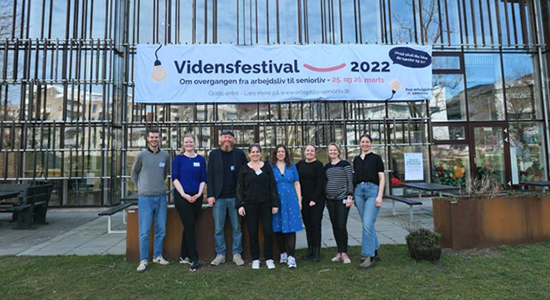About CoRe
At the Copenhagen Centre for Health Research in the Humanities, we are experts in the everyday life studies of illness and health. The Centre’s research contributes with crucial knowledge about how health and illness both create and shape the everyday lives of people and how their management of health and illness should be included in the development of the health field.

As part of the larger international research area of Health Humanities, we also engage in socio-historical examinations of how knowledge about health and disease is created. This can take the form of ethnological and historical studies of knowledge production not only within health sciences but also in other contexts such as the home, at community meetings, and in the development of new health technologies.
Our research
We work with the concept of “engaged research”. The concept signifies that our research always attempts to engage with relevant parties and contexts outside the university, helping to influence and shape the society of the future.
New research projects at CoRe regularly arise as an attempt to solve a challenge in society. The challenge can be a concrete one, such as the oral hygiene of vulnerable elderly citizens, or a more general challenge, such as our understanding of what mental disorders are and how it affects our view of them.
Read more about our research at CoRe.
Methods and results
We primarily conduct cultural and cultural historical analysis of health-related themes, specifically:
- thorough, in-depth qualitative/quantitative studies that can contribute to both concrete policy development and social change;
- research questions that address interrelated and complex issues at the intersection of lived life, the political agenda, concrete change practices, and a particular cultural perspective on relationships; and
- careful and generative interventions based on respect, understanding, empathy, and recognition of the people and practices we study and their internal meaning.
We collaborate with municipalities, NGOs, businesses, and other research institutions and disciplines. This collaboration is crucial for us to create results that work in practice. In this manner, we ensure that our research contributes to solving some of the extensive societal challenges that are related to health and disease. See who we collaborate with.
We collaborate throughout the process with the people who are the focus of our research. The process ranges from the development of the project’s trajectory, through the involvement of citizens, experts, and other stakeholders in the fieldwork, to the generation of results that we constantly make sure to target a specific audience. We publish many different forms of dissemination. We not only produce research articles and reports but also do podcasts, write books, create exhibitions, and engage with media. The usage of a particular form of dissemination typically depends on its suitability for the message that we intend to convey from our research.
Using methods from ethnology and history, our research can bridge the gap between science, policy, and everyday practices. In doing so, we can help improve population health in the future.
If you have an idea for a project or would like to know more about our research or a specific research project, please feel free to contact us.
Teaching
CoRe researchers teach programs both within and outside the university.
Teaching and external examinations at the university
- Bachelor’s program in European Ethnology
- Master’s program in Ethnology
- Master of Arts (MA) in Applied Cultural Analysis
- Guest lectures elsewhere, nationally, and internationally
- External examiner on Master in Humanistic Health Science and Practice Development (AU)
- External examiner for Technoanthropology (AAU)
Training, workshops, and presentations outside the university
- Senior councils, workplaces, training programs for senior counsellors, municipalities
